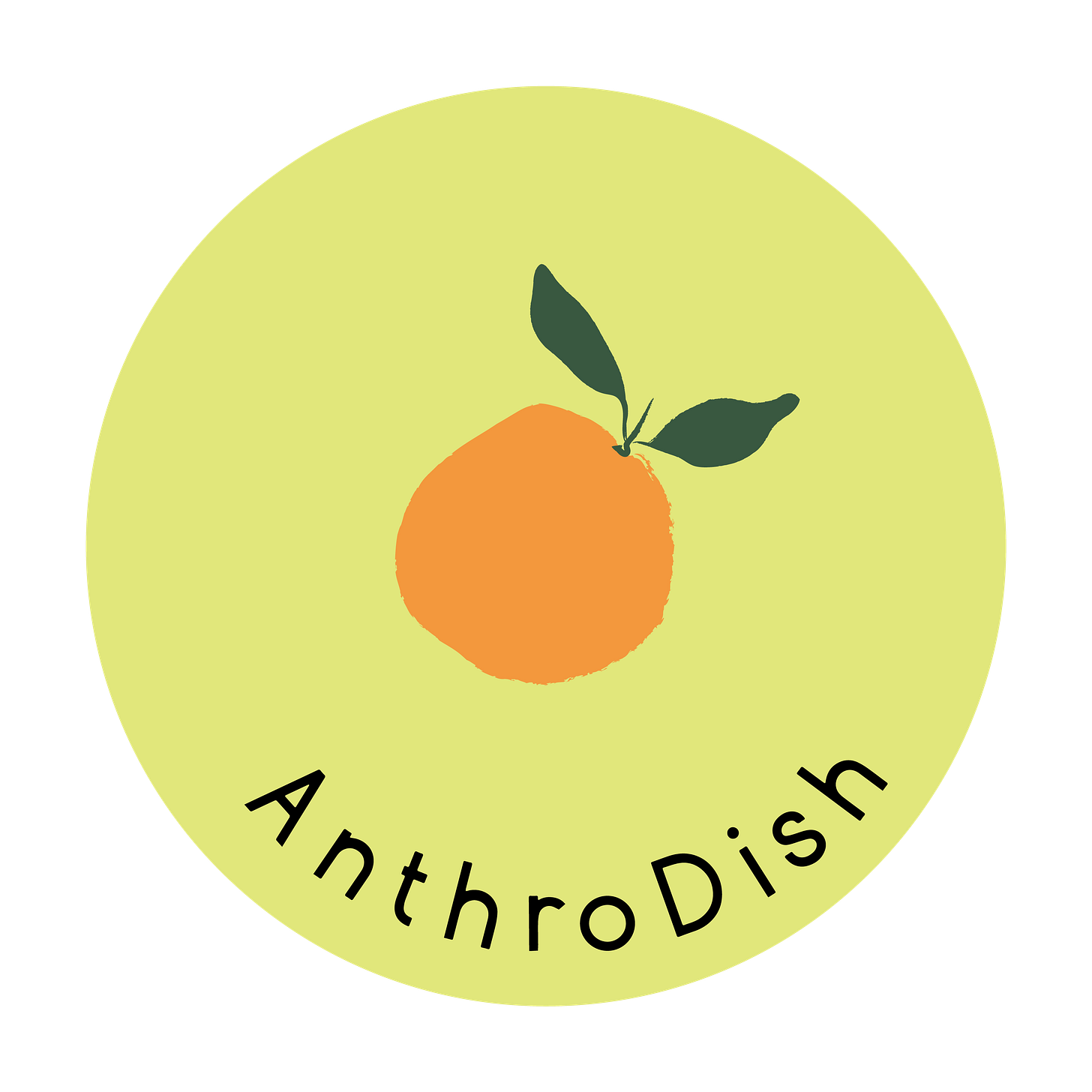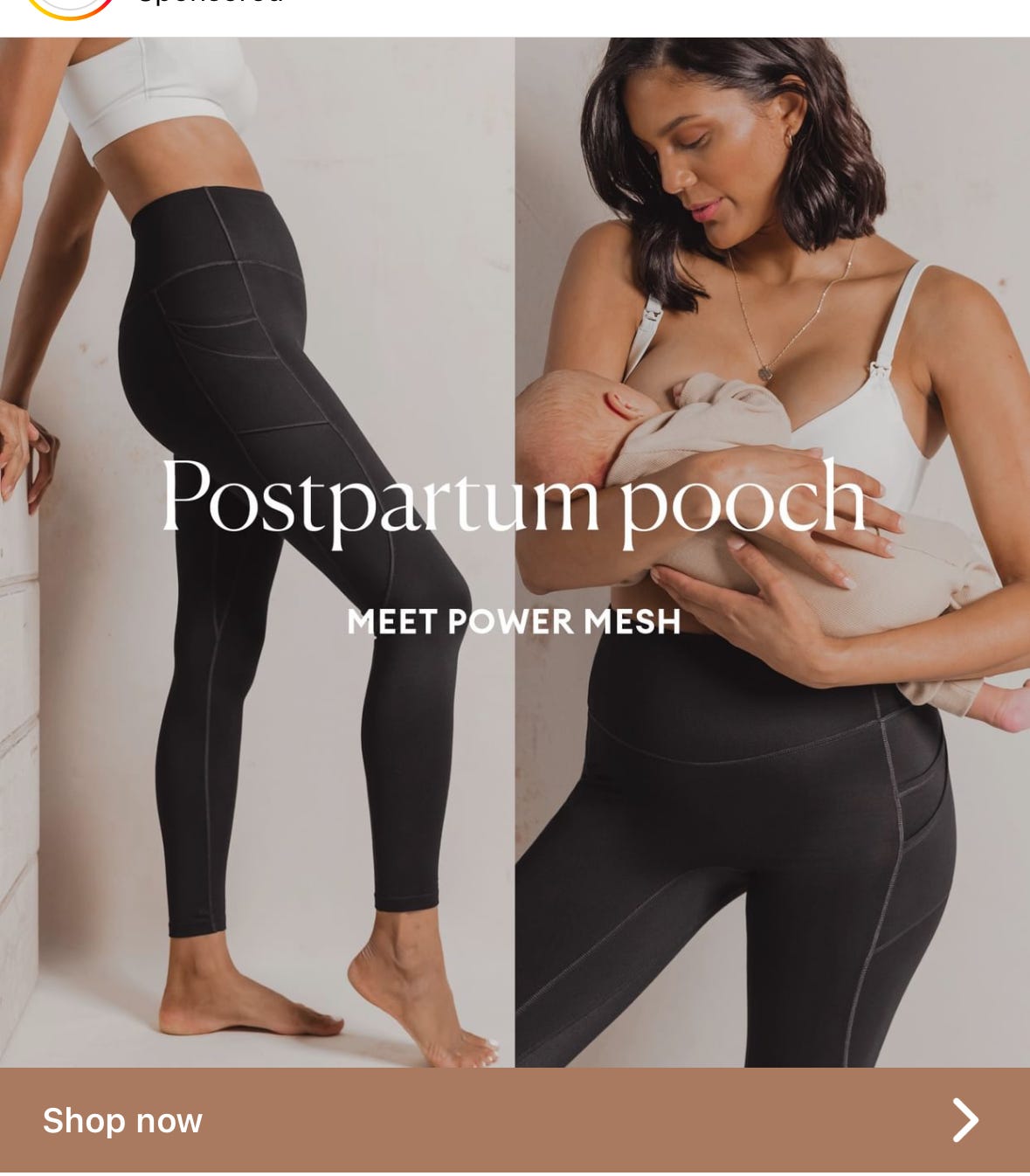Pregnancy in the Time of Healthism Abundance
Dr. Sarah Duigan on pregnancy fitness influencers, algorithms, and breast-is-best pressure
We have a lot of new faces here this week — hello! Thanks for joining us at Feminist Food Journal (FFJ). FFJ is a magazine and podcast focused on global feminist perspectives on food and culture, edited and illustrated by Isabela Bonnevera and Zoë Johnson. We send out new essays every other Tuesday, always under the umbrella of a rolling magazine issue. We’re currently publishing our eighth issue, BODY. If you’ve just joined us, we recommend catching up with our recent BODY essays:
Where Does All the Food Go? On body size and Nigerian beauty standards, a memoir on growing up thin in a culture that prioritizes thickness by Rejoice Isaac
Esophageal Yearning, a deliciously visceral poem (with a free audio reading!) about learning to cook with body dysmorphia by Taylor Hunsberger
Questioning Lumps: Encountering obstacles in a smoothening world, an examination of lumps — in bodies, baking, and modern life — by Clare Michaud
Bottomless: A journey through grief, gas, and gut instincts, an exploration of mind-gut connections and queer expression by Shena Cavallo
Otherwise, we encourage you to check out our rich back catalogue of past issues: MILK, WAR, SEX, EARTH, CITY, SEA, and MEAT. Most of our work is available paywall-free, but we offer a premium subscription option which offers audio readings of most essays, behind-the-scenes newsletters, access to our community WhatsApp group, and soon — community events! (A premium subscription also makes a great holiday gift!)
You can find our latest BODY piece below.
Our fifth BODY piece is a three-part essay on the social norms, moral pressures, and capitalistic excess exerted onto pregnant bodies by Dr. Sarah Duignan. It was originally written in May 2024 for her newsletter AnthroDish, which explores systemic and often under-discussed issues in our food systems. One reason we love the newsletter is because of how seamlessly Dr. Duignan nestles her personal experiences in the context of wider policy and corporate actions. We highly recommend subscribing if you haven’t already.
Find AnthroDish on Instagram, Threads, and TikTok, or check out the podcast on iTunes and Spotify.
By Sarah Duignan
After 8 years, I thought I’d reached a place of peace, knowing that my experiences of motherhood are vastly different than others, and to embrace how different we all enter and experience it. I’ve only comparatively explored my own two pregnancies before, because it’s easier for me than to extrapolate more generally on millennial motherhood.
Having my daughter young profoundly shaped my life and perspectives. I would scout out curbed (and likely expired) car seats from Toronto church donation organizations or trek out to the Parry Sound dump with friends to find a couple of plastic phone toys or books in the salvage bins there. I wouldn’t point out that a cashier forgot to scan the baby formula I was trying to purchase, because it saved me $50 that I didn’t have that week. I was scrappy, and I’m at ease knowing I did the best with what I had during those early years.
When I got pregnant again this past fall, I didn’t anticipate the tidal wave of pregnancy fitness and health-related social media posts that would pour over me and challenge that confidence. I’m grateful that I wasn’t exposed to this algorithmically pushed content about babies and pregnancies the last time. I know I wouldn’t have fared well at that age and that level of isolation. And as much as this age of abundant information has the power to inform and change how people experience their pregnancies and healthcare treatments, it comes with a new wave of morality-driven content. In this, “natural” child birthing experiences (sometimes referred to as “free birthing”) are positioned explicitly against medical or social interventions in a way that I find destabilizing in a post-Roe v. Wade world.
23 and anthropological me
During my 2015 pregnancy, I was a few weeks into marathon training, and had come across the new influx of Instagram lifestyle influencers. I found a free PDF-version of Kayla Itsine’s Bikini Body Guide, much as I cringe to admit that now, which was a one-size-fits-all approach to exercise fashioned amidst “thinspiration” trends on Tumblr. By virtue of being 23, it didn’t occur to me to bend my exercise to the ways that my body was shifting and needing. I learned the hard way how difficult it is to try and do crunches at 9 weeks pregnant.
I looked up pregnancy-safe yoga, but the only classes available in Toronto were on the east end (and I in the west): a 1.5-hour streetcar ride and a $35 per class price tag I couldn’t swing with my tip money. Being an anthropology grad student, I furiously maintained that if people had been birthing babies for millennia, I surely didn’t need to read a book that spurned a horrible movie (What to Expect While You’re Expecting) to figure it all out.
This time, I’m gentler with myself and open to new ways of doing things. (And as I’ve spoken about before, I have access to more privileges than before, such as a maternity leave, a partner, and some savings). I forgot one of the main takeaways from medical anthropology classes the last time: that we as humans are naturally social creatures, which transcends into pregnancy and child-rearing cross-culturally. Even the very nature of how we give birth necessitates that we have some form of community in place to help with the delivery, based on our cranial sizes and reproductive trade-offs.
pregnancy fit-fluencers
The problem is that being “open” to new information can quickly become an icy slip-and-slide down a glacier of internet-driven maternity information. Now that millennials have been birthing children for some time, and Gen Z is starting to, social media landscapes have pivoted to capitalize our attentions and wallets from it. There are wake windows, free birthers, postpartum corsets, and affiliate links for fresh newborn baby’s favourite hospital items (hint: the baby didn’t actually pick them).
A recent New York Times (I know, I know) podcast investigated the “micro-generation” of individuals born between 1990 and 1991 (including myself) that make up the “peak of America’s population.” These so-called peak millennials try to squeeze into a system that is already too small to accommodate the largest population group all at once. The thinking goes that if I am having a baby right now, so too are many others in this micro-generation, all at the same time. (I can attest anecdotally – there are no midwives or prenatal vitamins to be found in Guelph this year).
It makes me wonder how much of the content-bombardment is situating itself within this micro-generation, knowing how many people may be having or trying to have kids for the first time. Yet globally (and within the United States), there is a slowing birth rate – which does not feel surprising given the increasingly draconian anti-abortion laws, the cost of giving birth/childcare/domestic labour, and the limits of population pressure amidst climate change. In that context, and with the lurking threat of tradwives like Estee Williams, the maternal content pushes can also feel like last-ditch aspirational efforts of uber-Christians to maintain patriarchal institutions.
Where before I was left to my own devices to figure out what to bring with me to the hospital (an iPhone with pixelated seasons of It’s Always Sunny in Philadelphia, a lucky necklace from my aunt, a fuzzy pink robe I never wore, and a toothbrush), I am now reminded each day that it’s time to pack my bag! If I just click the link in this story, I can go right to someone’s LTK or Amazon storefront to see what their maternity ward essentials are!
Some of the very real suggestions to pack for the hospital: a baby night light, silver nursing cups, nipple cream, baby nail clippers, portable sound machine, shower slippers, and three sets of classic satin pyjamas. It all reads like a twisted, apocalyptic I Spy riddle.
The hospital bag prompts give way to an endless onslaught of fitness activities and exercises to “remove your mom pooch.” The mum pooch in question is just the uterus that has spent nine months stretching out to grow a human, which is now subjected to rapidly shifting hormones. But sure, call it a pooch and shame it as quickly as you can, ideally before labour even begins and the body is still functioning as pregnant.
The exercises recommended across Instagram and TikTok focus on core rehabs, some more useful than others. There are gentle ways to stretch and re-connect to your body when it feels like it got hit by a train and will bleed out for weeks while you’re also leaking breastmilk and sweating out months of water weight and hormones. Others are more accusatory, lamenting that you didn’t train your core enough during pregnancy and so that is why it’s so hard to get back into “shape” six weeks postpartum. Or, most shockingly, that it is your fault that your c-section isn’t healing as quickly as it should, because you didn’t eat the right things or cast the right spell (it’s also your fault that you missed the full moon for that spell!).
While exhausting, it points to a niche within the individualistic discourse within Western norms around health. While there has always been pressure by society for women to “bounce back” after childbirth, the new age of the algorithm positions us all as watchful observers of each other’s bodies and abilities through body transitions and health.
Under Foucault’s understanding of the “gaze of power,” he argues that the body begins to discipline or regulate its actions based on which docile behaviours are accepted by society at the time – increasing individualism under the false sense of a communal understanding of bodies and health. The risk here, is that when we focus on the self as the primary driver of health, it fractions us off, individualizing and medicalizing the experiences of health (and illness), rather than taking an opportunity to better engage with collective and political realities of our health and wellness.
bad moms and best breasts
The most challenging element for me as a first-time parent was breastfeeding, a topic which also tends to get a lot of high coverage and moralities around it through social media feeds. (And I will note – I think it’s wonderful that breastfeeding is becoming normalized again in Western society! But it remains a privilege for those who have the time, food supply, and support to be away from work and pump. I just tend to advocate for fed is best, with no shame).
My last pregnancy, I was surrounded by anthropologists that advocated for breast is best, citing the Nestlé infant formula scandal as part of the much larger commodification of baby formula that removed us from our natural origins. Being in that world and having a PhD supervisor that specialized in breastfeeding health studies, I felt a different type of pressure to exclusively breastfeed.
I struggled immediately. I knew all the studies, all the global human growth charts, the ways that babies were naturally supposed to progress, and in that, was made to feel as though formula feeding was a moral failing.
A couple of weeks into breastfeeding, however, I had returned to work, my baby had jaundice from my lack of milk supply, and I was crying alone in my apartment. I called my mum, wailing about how I couldn’t do this one simple thing I was biologically supposed to do. She calmly reminded me that both my brother and I were formula fed, and that an aunt had gifted me some formula packs if I needed them.
I went to the cupboard and began mixing the powder with hot water, with my daughter taking no issue with the bottle. Yet I felt guilty, looking around, waiting for the great medical anthropologists to parade into my kitchen and tell me I was a bad mother. Unsurprisingly, no one gave a shit what I fed my baby.
That was, and remains, the most important lesson I’ve learned from mothering: you’re responsible for raising and educating your kids to enter the world as reasonable, and hopefully thoughtful and kind adults, and no one really, truly cares what you feed them to get there. No one cares if you engaged your core during pregnancy routines, and no one thinks you’re a better mother because you abstained from any life-saving medical interventions you needed that can accompany birth (c-sections, epidurals, morphine, etc.).
It extends further: your child is no better because they learned to walk a few weeks ahead of schedule, or because they played with beige wooden toys over cheap plastic ones you found at the dump. You are not a bad parent because you needed to turn on a TV show to entertain your toddler while you shower, write, connect back to yourself.
Had I taken to the moral panics of TV time in my early parenting, I wouldn’t have been able to finish my dissertation. Which opened doors affording me time to take her to the library to unearth old and new favourite stories, sports camps that teach her how to connect and team build, or camping trips where she learns about different snake species in Ontario. There are so many moments throughout our long days and short years to teach our children about the world, in all its beauty and horror. Nowhere in those moments does any Amazon storefront have the potential to make someone a better parent.
Our internet selves and algorithms keep pushing the most reactive content it possibly can, and in doing so, warps how we ought to think of periods of tremendous change and transition. The vulnerable periods of transition are ones where we are coerced into thinking that we need more material objects to be better versions of ourselves.
My grandmother told me recently that she was amazed at all the information I was learning from my OB-GYN, about the baby’s size and development and whether I was able to get induced earlier than my due date. She shared with me that all she had was the male family doctor who would come and do a house visit to make sure things were reasonably okay before dipping. It struck me that amidst all the noise of the internet, there was so much power in the new information I have this time around, if I’m only willing to silence the buzzing of the internet’s opinions.
Sarah Duignan is a medical anthropologist from Guelph, Canada. Through her award-winning AnthroDish podcast and biweekly newsletter, she explores relationships between food, culture, health, and environment.










